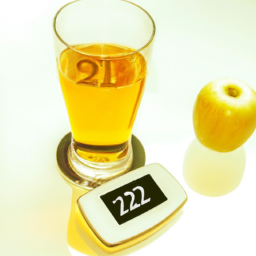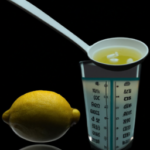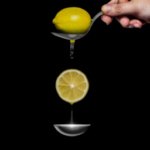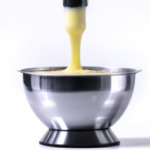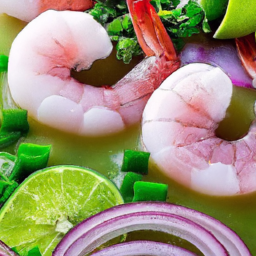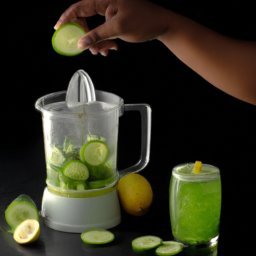I always love adding lemon juice to my water, salads, and various dishes. Not only does it add a tangy, refreshing flavor, but it is also packed with vitamin C and antioxidants. However, I have sometimes wondered about the calories in lemon juice and how it affects my diet.
So, I did some research to find out how many calories are in lemon juice. Before delving into the calorie count of lemon juice, it’s important to understand the concept of calories. Calories are a unit of measurement for energy. They are the amount of energy needed to raise the temperature of one gram of water by one degree Celsius.
When it comes to food, calories refer to the amount of energy that our body derives from the food we eat. Knowing the number of calories in the foods we consume is crucial for maintaining a healthy body weight and achieving our dietary goals.
Key Takeaways
- Lemon juice contains only 22 calories per 100-gram serving, making it a low-calorie addition to any diet.
- Diluting lemon juice with water or other low-calorie liquids can reduce calorie count in recipes.
- Lemon water aids in digestion and detoxification, making it a healthy beverage choice.
- Lemon juice should be incorporated into a well-balanced and nutritious diet, rather than relied on as a quick fix for weight loss.
Understanding Calorie Count
You’ll be surprised at how easy it is to understand calorie count once you start using it regularly. Contrary to popular belief, calorie counting isn’t rocket science. It simply involves tracking the amount of energy you consume through food and drink.
However, there are a lot of calorie myths out there that can make counting seem daunting. For instance, some people believe that all calories are created equal, regardless of where they come from. Others believe that calories are the enemy and should be avoided altogether. These myths can be harmful as they can prevent people from making informed decisions about their diet.
The truth is that tracking your calorie intake can be a powerful tool for achieving your health goals. By knowing how many calories you need to consume each day and by tracking what you eat and drink, you can make sure that you’re meeting your nutritional needs without overeating. This can help you lose weight, gain muscle, or simply maintain a healthy weight.
So, before you start worrying about the nutritional value of lemon juice, take some time to learn about calorie count and how it can benefit you.
Nutritional Value of Lemon Juice
When adding lemon juice to your water, you may be surprised to learn about the health benefits it offers. Not only does it contain a significant amount of vitamin C, but it also has antioxidant properties that can improve your overall immune system.
According to a study, participants who consumed lemon juice daily had a higher level of antioxidants in their blood, which can help protect against cell damage and inflammation.
In addition to its antioxidant properties, lemon juice also has a nutrient profile that is packed with vitamins and minerals. For example, it contains high levels of potassium, which can help regulate blood pressure, and citric acid, which can aid in digestion.
Furthermore, it’s low in calories and sugar, making it a perfect addition to any diet. Speaking of calories, let’s take a look at the calorie content of pure lemon juice.
Calorie Content of Pure Lemon Juice
Feeling guilty about your high-calorie drink choices? Try swapping them out for pure lemon juice – it’s surprisingly low in cals!
A 100-gram serving of pure lemon juice contains only 22 calories. That’s right! You can enjoy the refreshing tang of lemon juice without worrying about adding too many calories to your diet.
It’s important to note that the calorie count may vary depending on the serving size. The 22 calories per 100-grams is equivalent to about 1/3 cup of pure lemon juice. So, if you’re adding lemon juice to your water or using it as a salad dressing, be mindful of how much you’re using.
But overall, pure lemon juice is a great low-calorie option to add flavor and refreshment to your meals and drinks.
Now, let’s move on to the next section and explore the calorie content of lemon juice in recipes.
Calorie Content of Lemon Juice in Recipes
Adding a splash of zesty citrus to your favorite recipes with lemon juice can bring a burst of flavor that’ll leave your taste buds dancing with joy. However, as with any ingredient, it’s important to be mindful of the calorie count when using lemon juice in recipes.
While pure lemon juice contains only a few calories per tablespoon, the calorie count can quickly add up when used in larger quantities in recipes such as marinades, dressings, and sauces.
To make recipe substitutions that are lower in calories, consider using lemon zest instead of juice. Lemon zest contains all of the flavor of lemon juice without the added calories. Another option is to dilute the lemon juice with water or other low-calorie liquids, such as vinegar or broth.
By making these simple swaps, you can still enjoy the bright, tangy taste of lemon in your favorite recipes without compromising your calorie intake.
Transitioning into the subsequent section about "lower calorie alternatives,"it’s important to note that there are many other ingredients that can be used in place of lemon juice to add flavor to your dishes.
Lower Calorie Alternatives
When trying to reduce calorie intake, it’s important to find lower calorie alternatives. One option is to replace sugary drinks with lemon water, which has zero calories and adds flavor to your drink.
Another alternative is to use lemon zest instead of juice, as it contains fewer calories but still provides the lemon flavor.
Lastly, using lemon juice as a flavor enhancer in dishes can add a burst of flavor without adding too many calories.
Lemon Water
To get the most out of your lemon water, it’s important to use fresh lemon juice instead of bottled juice which often contains added sugars and preservatives. Fresh lemon juice not only tastes better, but it also provides more health benefits.
Lemon water is a great way to detoxify your body and aid in digestion. Here are three reasons why you should start drinking lemon water today:
-
Lemon water benefits your skin. The vitamin C in lemons helps to reduce wrinkles and blemishes, while the antioxidants help to fight free radicals that can damage your skin.
-
Lemon water aids in weight loss. The pectin fiber found in lemons can help to reduce hunger cravings, making it easier to stick to a healthy diet.
-
Lemon water detoxifies your body. The citric acid in lemons helps to flush out toxins and prevent kidney stones, while the potassium in lemons helps to regulate blood pressure.
Now that you know the benefits of lemon water, it’s time to move on to the next step: using lemon zest in your cooking.
Lemon Zest
If you’re looking to add some serious flavor to your dishes, try incorporating some lemon zest! Did you know that just one tablespoon of lemon zest contains more vitamin C than an entire lemon?
Not only does it pack a nutritional punch, but it also adds a bright and fresh taste to your food. Using lemon zest in cooking can enhance the flavor of both sweet and savory dishes. From adding it to a marinade for chicken to sprinkling it on top of a fruit salad, the possibilities are endless.
But the benefits of lemon zest don’t just stop at flavor. Lemon zest is also known for its health benefits. It contains antioxidants that can help protect your cells from damage, and it may even help boost your immune system.
So the next time you’re cooking, don’t just throw away the lemon zest – use it to add some extra nutrition and flavor to your meal. Now, let’s move on to using lemon juice as a flavor enhancer.
Using Lemon Juice as a Flavor Enhancer
You can easily amplify the taste of your dishes by incorporating a tangy and acidic flavor enhancer that’s readily available in your kitchen – lemon juice. This versatile ingredient not only adds depth and brightness to your meals, but it also provides numerous health benefits.
Lemon juice is a rich source of vitamin C, which is essential for a healthy immune system and skin. It also contains antioxidants that help to reduce inflammation and fight against free radical damage.
Incorporating lemon juice into your cooking is easy. You can add it to dressings, marinades, sauces, and even desserts. Lemon juice pairs well with a variety of flavors, including herbs, garlic, and honey. Try using it in a simple vinaigrette for your salad or squeezing it over roasted vegetables for a burst of brightness. There are countless lemon juice recipes to explore, from lemon chicken to lemon bars.
By incorporating this simple ingredient into your cooking, you can elevate the flavor of your dishes while reaping its many health benefits.
Incorporating lemon juice into a healthy diet is a great way to add flavor and nutrition to your meals. However, it’s important to remember that lemon juice alone cannot provide all the nutrients your body needs. It should be used as part of a balanced and varied diet that includes plenty of fruits, vegetables, whole grains, and lean protein sources.
With that in mind, let’s explore some easy ways to incorporate lemon juice into a healthy and well-rounded diet.
Incorporating Lemon Juice into a Healthy Diet
Incorporating lemon juice into your healthy diet can help you meet your daily vitamin C needs. Did you know that one lemon contains about 30-40 milligrams of vitamin C, which is over 30% of the recommended daily intake for adults? This essential vitamin acts as an antioxidant, protecting your cells from damage caused by harmful free radicals. Consuming vitamin C regularly may also help boost your immune system, improve skin health, and reduce the risk of chronic diseases.
Aside from its vitamin C content, lemon juice also offers other benefits. It can add flavor to your dishes without adding calories or sodium. You can use lemon juice as a marinade for fish or chicken, as a salad dressing, or as a substitute for vinegar in recipes.
Incorporating lemon juice into your diet is a simple way to enhance the taste of your meals and reap its health benefits. Now, let’s find out how consuming lemon juice can aid in weight loss diets.
Lemon Juice in Weight Loss Diets
Adding a squeeze of fresh lemon to your water or tea can aid in weight loss by helping to curb cravings and promoting hydration. Lemon juice is rich in vitamin C, which has been shown to help boost metabolism and burn fat. Additionally, lemon juice has a detoxifying effect on the body, helping to flush out toxins and waste that can contribute to weight gain.
Many people also use lemon juice as a natural appetite suppressant, helping them to feel fuller and eat less throughout the day. However, it’s important to note that lemon juice detox and cleansing diets are not sustainable or healthy long-term weight loss solutions. These types of diets often involve consuming large quantities of lemon juice, which can be harmful to the body in excess.
It’s important to incorporate lemon juice into a well-balanced and nutritious diet, rather than relying on it as a quick fix for weight loss. In the next section, we’ll discuss precautions for high lemon juice consumption.
Precautions for High Lemon Juice Consumption
Before going overboard with this citrusy elixir, it’s crucial to consider the potential risks associated with excessive consumption. While lemon juice has numerous health benefits, including aiding in digestion, boosting immunity, and promoting weight loss, consuming large quantities can have adverse effects.
Here are some precautions to keep in mind:
-
Lemon juice is highly acidic and can erode tooth enamel over time. To prevent this, it’s best to dilute the juice with water or drink it through a straw to minimize contact with teeth.
-
Consuming too much lemon juice can also lead to heartburn, as it increases the production of stomach acid. Those with acid reflux or GERD should be cautious and limit their intake.
It’s important to note that moderate consumption of lemon juice is generally safe and provides numerous benefits. However, it’s always best to consult with a healthcare professional before incorporating large amounts into your diet.
Moving on to the next section, let’s explore other uses of lemon juice in cooking and beyond.
Other Uses of Lemon Juice
If you’re looking to add a zesty kick to your meals, squeeze a splash of sunshine into your dishes with this versatile ingredient that can brighten up any recipe like a burst of fresh air on a sunny day. Lemon juice is not just a great addition to your meals, but it also has numerous benefits that can improve your health. One of the most notable benefits of lemon juice is its ability to aid digestion. The citric acid found in lemon juice stimulates the production of digestive juices, helping your body break down food more effectively. Additionally, lemon juice contains vitamin C, which is essential for immune system function and can help prevent the common cold.
But did you know that lemon juice also has benefits for your skin? The citric acid in lemon juice can act as a natural exfoliant, helping to remove dead skin cells and brightening up dull skin. It also has antibacterial properties that can help fight acne and other skin infections. However, it’s important to be cautious when using lemon juice on your skin, as it can be harsh and potentially cause irritation. It’s always a good idea to do a patch test before applying lemon juice to your skin, and to dilute it with water or other ingredients to reduce its acidity.
| Lemon Juice Benefits | Lemon Juice for Skincare | ||
|---|---|---|---|
| Aids digestion | Acts as a natural exfoliant | ||
| Contains Vitamin C | Can help fight acne | ||
| Boosts immune system | Has antibacterial properties | ||
| Can cause irritation if not diluted properly | It is important to always do a patch test before using lemon juice on your skin. |
Frequently Asked Questions
Can lemon juice be harmful if consumed in large quantities?
Consuming excessive amounts of lemon juice can cause dental erosion, heartburn, and upset stomach. However, incorporating moderate amounts into a balanced diet may aid in weight loss. It is important to consult a healthcare professional before making significant dietary changes.
How does the calorie content of lemon juice compare to other citrus fruits?
Comparing the nutritional value and health benefits of citrus fruits, I find lemon juice to be a top contender. Its zesty flavor and high levels of vitamin C make it a refreshing and healthy addition to any diet.
Does the calorie content of lemon juice change when it is heated or cooked?
I researched the effects of acidity and enzymes on the calorie content of lemon juice. Heating or cooking does not change its calorie count. Lemon juice remains a low calorie alternative to high sugar drinks.
Are there any nutritional benefits to consuming lemon juice aside from its low calorie content?
You may have heard about the health benefits of lemon water. It’s a great source of vitamin C and antioxidants, which may help boost immunity and prevent chronic diseases. Plus, it’s low in calories and can aid in digestion.
Can adding sugar or sweeteners to lemon juice significantly increase its calorie content?
Yes, adding sugar or sweeteners to lemon juice can significantly increase its calorie content. Sweetened lemonade and lemon juice cocktails can have anywhere from 100-200 calories per serving, depending on the amount of added sugar.
Conclusion
So there you have it, folks. Lemon juice is a low calorie, nutrient-dense addition to any diet. Whether you’re trying to lose weight, improve your digestion, or simply enjoy the tangy taste, lemon juice is a versatile ingredient that can be incorporated in a variety of recipes.
Think of lemon juice as the ‘little black dress’ of your kitchen. Just as a little black dress can be dressed up or down for any occasion, lemon juice can be used in sweet or savory dishes, hot or cold beverages, and even in household cleaning products. It’s a staple ingredient that can elevate any dish with its bright, acidic flavor.
So, next time you’re in the kitchen, grab a lemon and add a squeeze of fresh juice to your meal. Your taste buds and your body will thank you.
Ilana has been a vegan for over 10 years. She originally made the switch for health reasons, but soon found herself becoming more and more passionate about the ethical and environmental implications of a vegan lifestyle. Ilana is the author of The Graceful Kitchen, a blog all about veganism. She loves to cook up delicious and nutritious vegan meals, and share her recipes with others who are interested in leading a cruelty-free life. Ilana is also a strong advocate for using whole foods as the foundation of a healthy diet, and believes that going vegan is one of the best ways to achieve this.

